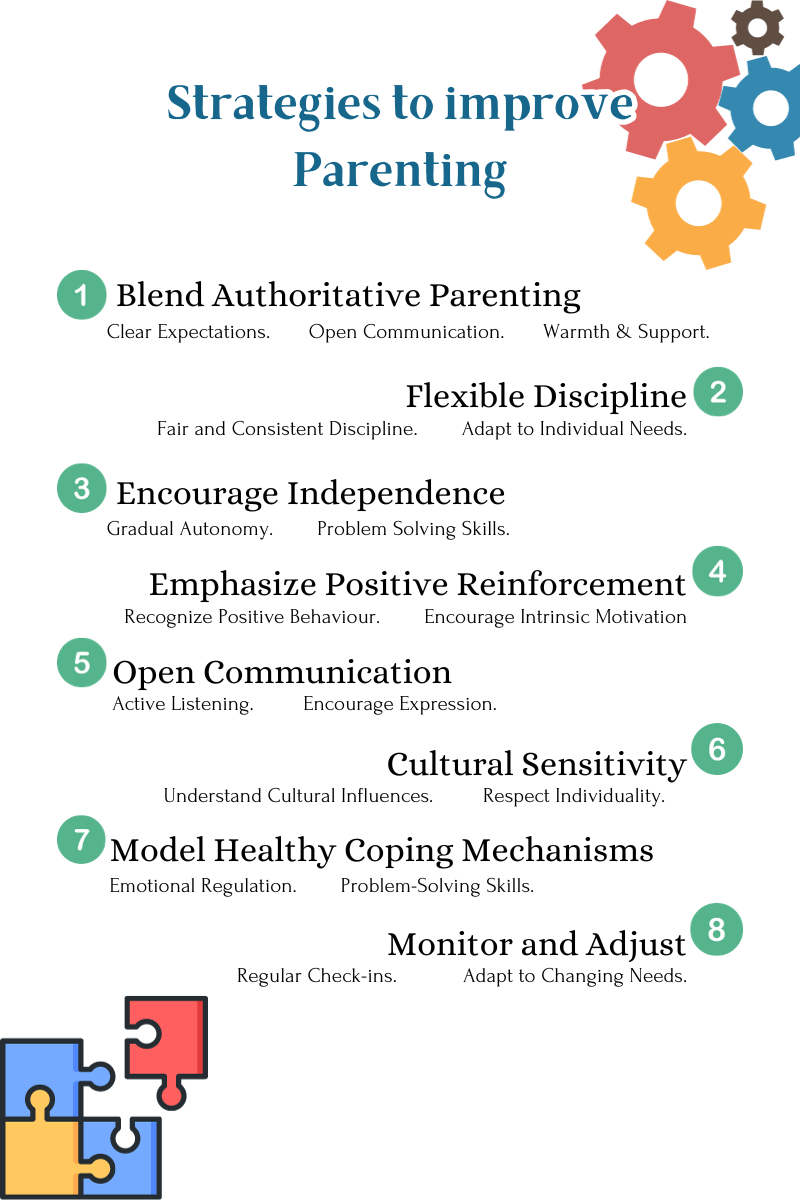Mastering Parenthood: A Comprehensive Guide to all types of Parenting Styles
- Mahendra Singh Uikey
- Dec 10, 2023
- 2 min read
Updated: Jun 27, 2024

Navigating the vast sea of parenting styles can be both enlightening and challenging. In this comprehensive guide, we explore the intricacies of authoritative, authoritarian, permissive, and uninvolved parenting styles. Discover valuable insights and practical tips for parents seeking an effective roadmap to successful child-rearing.
1.Authoritative Parenting: Striking the Perfect Balance
Authoritative parents set clear expectations and boundaries while maintaining a warm, nurturing relationship with their children. They value open communication and are responsive to their child's needs. Rules and consequences are explained thoughtfully, and children are encouraged to express their opinions.
Impact on Child Development: Typically, children raised with authoritative parenting tend to be self-reliant, confident, and socially competent.
2.Authoritarian Parenting: Decoding Strict Rules and Their Consequences
Authoritarian parents are characterized by high demands and expectations, often enforcing strict rules with little room for negotiation. Discipline tends to be punitive, focusing on obedience. Communication is typically one-way, with less emphasis on nurturing.
Impact on Child Development: Children raised in authoritarian environments may exhibit strong obedience but often struggle with decision-making and social skills.
3.Permissive Parenting: Nurturing Independence with Caution
Permissive parents are lenient and indulgent, placing few demands on their children. They often avoid confrontation and may act more like a friend than an authority figure. Rules are often inconsistent, and there is a high level of tolerance for noncompliance.
Impact on Child Development: Children raised with permissive parenting might struggle with self-discipline, have difficulty following rules, and may experience challenges in understanding boundaries.
4.Uninvolved Parenting: Understanding the Silent Presence
Uninvolved parents are characterized by a lack of emotional involvement and responsiveness to their children. They may provide basic needs but are generally detached and unengaged in their child's life.
Impact on Child Development: Children raised in an uninvolved environment may experience emotional neglect, have lower self-esteem, and may struggle with forming healthy relationships.

Optimizing Your Parenting Approach
Optimizing your parenting approach to promote the mental health of your child involves incorporating elements from various parenting styles, emphasizing flexibility, communication, and empathy. Here are some key strategies to consider:
1. Blend Authoritative Elements:
Clear Expectations: Set clear, reasonable expectations for your child's behaviour and responsibilities.
Open Communication: Encourage open communication where your child feels comfortable expressing thoughts and feelings.
Warmth and Support: Provide emotional support and warmth to create a secure and loving environment.
2. Flexible Discipline:
Fair and Consistent Discipline: Implement fair and consistent consequences for actions, focusing on teaching rather than punishing.
Adapt to Individual Needs: Tailor your approach to your child's unique personality, taking into account their strengths and challenges.
3. Encourage Independence:
Gradual Autonomy: Foster age-appropriate independence, allowing your child to make decisions and learn from their experiences.
Problem-Solving Skills: Teach problem-solving skills, helping your child navigate challenges and make informed decisions.
4. Emphasize Positive Reinforcement
Recognize Positive Behavior: Reinforce positive behaviours through praise and acknowledgement.
Encourage Intrinsic Motivation: Help your child develop intrinsic motivation by nurturing their interests and passions.
5. Open Communication:
Active Listening: Practice active listening to understand your child's perspective and validate their feelings.
Encourage Expression: Create a safe space for your child to express themselves without fear of judgment.
6. Cultural Sensitivity:
Understand Cultural Influences: Be aware of cultural influences on your parenting style and adapt as needed.
Respect Individuality: Respect and celebrate your child's individual identity, acknowledging the diversity within your family.
7. Model Healthy Coping Mechanisms:
Emotional Regulation: Model healthy emotional regulation by demonstrating how to cope with stress, frustration, and disappointment.
Problem-Solving Skills: Show your child effective problem-solving skills and how to approach challenges with a positive mindset.
8. Monitor and Adjust:
Regular Check-Ins: Regularly check in with your child to understand their feelings, experiences, and any challenges they may be facing.
Adapt to Changing Needs: Be willing to adjust your parenting approach as your child grows and their needs evolve.

Remember that parenting is a dynamic process, and there is no one-size-fits-all approach. Pay attention to your child's temperament, and be willing to adapt your parenting style to best support their mental health and overall well-being. Regularly seek input from your child, and collaborate with them in creating a nurturing and supportive family environment.
















Comments